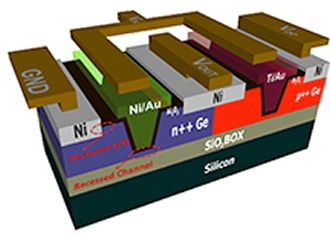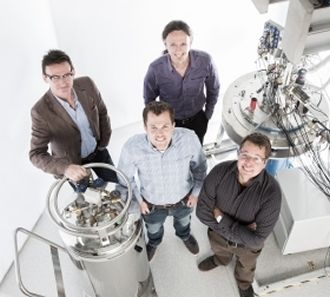Tag: silicon
Germanium displaces silicon
 Chips today use complementary metal oxide semiconductor (CMOS) based on purified silicon substrates to do their magic work.
Chips today use complementary metal oxide semiconductor (CMOS) based on purified silicon substrates to do their magic work.
But scientists at Purdue University claim to have created the first modern germanium circuit that cuts silicon out of the equation.
The first transistor, created by Bell Labs, used purified germanium cooked up in the Purdue labs in 1947. That was superseded by silicon but as devices get tinier and tinier, silicon is reaching the end of its long innings, according to Peide Ye, a professor at Purdue.
He said: “The industry will soon reach the limit as to how small silicon transistors can be made, threatening future advances. Germanium is one material being considered to replace silicon because it could let the industry make smaller transistors and more compact integrated circuits.”
Ye said germanium has other advances over silicon, including the ability to make superfast circuits.
Ye didn’t talk about the price of germanium. Chips made by giants like Intel use purified silicon but ultimately based on sand. And sand is cheap.
Quantum silicon computer gets accurate
 Two teams working at the University of New South Wales (UNSW) claim to have an answer to problems creating quantum supercomputers.
Two teams working at the University of New South Wales (UNSW) claim to have an answer to problems creating quantum supercomputers.
Quantum bits – qubits – are building blocks for quantum computers and the teams now say they’ve come up with qubits that process data with an accuracy above 99 percent.
Quantum computers won’t become a reality until very low error rates are achieved, said Professor Andrew Dzurak, director of the Aussie fabrication unit at UNSW.
The teams claim to have arrived at two parallel pathways for building a quantum computer in silicon.
Dzurak said that the teams have created a so-called artificial atom that is very similar to silicon transistors used in MOSFETs. He said the experiments are the earliest using solid state devices and the first in silicon.
How far off is an effective quantum supercomputer? The answer to that question is unclear but the next step is to create pairs of qubits, with the real thing containing thousands of millions of qubits, perhaps using thousands of millions of artificial and natural atoms.






